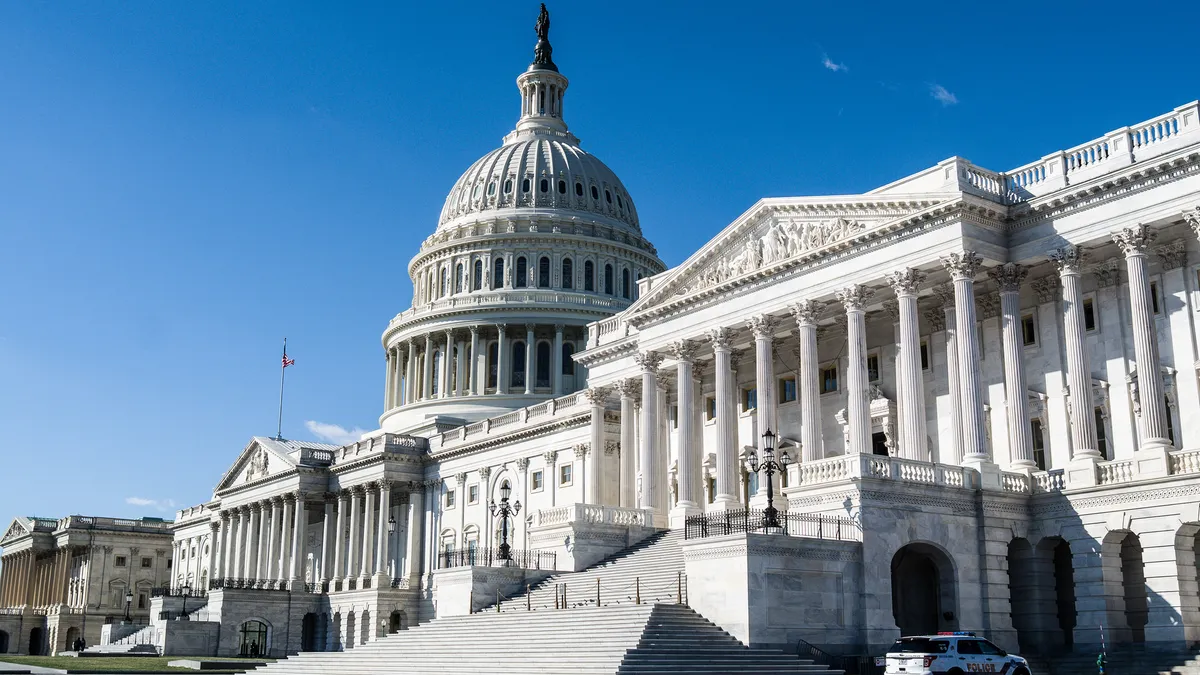Dive Brief:
- Congress is preparing to again take up legislation on autonomous vehicles (AVs) after it failed to pass regulations during the last session.
- U.S. Sen. John Thune, R-SD, said during an event in Washington, DC hosted by Axios that he is looking to re-introduce a version of the American Vision for Safer Transportation Through Advancement of Revolutionary Technologies (AV START) Act, which failed to pass the U.S. Senate last year. Thune said he is in conversation with U.S. Sen. Gary Peters, D-MI, and his staff about what version might be introduced.
- "I hope we can close the deal, because we really do need to have the framework in place that puts the safety guardrails around the technology, but the technology is moving, and it's important for Congress and federal policymakers to keep up with it," Thune said in an on-stage interview.
Dive Insight:
The failure of Congress to pass federal legislation regulating AVs left many frustrated, including members of the House Energy and Commerce Committee, which passed the Safely Ensuring Lives Future Deployment and Research in Vehicle Evolution Act (SELF DRIVE Act) unanimously out of committee and then got floor approval by voice vote. Meanwhile, the AV START Act stalled in the Senate in part by several Democrats, who sent a letter expressing concerns on AV safety and implementation, and also by the American Association of Justice (AAJ), a group that represents trial lawyers and mobilized against many versions of the bill.
When Congress failed to approve AV legislation in the last session, leaders at the time blamed partisan bickering for the failure of the AV START Act to get a floor vote in the Senate. It passed out of the Senate Commerce Committee by a voice vote.
"The SELF DRIVE Act, which passed committee 54-0 and was approved by the House unanimously, serves as an example of how Congress should work in a bipartisan way to deliver results for the American people," former House Energy and Commerce Committee Chairman Greg Walden, R-OR, and former Digital Commerce and Consumer Protection Subcommittee Chairman Bob Latta, R-OH, said in a joint statement late last year.
Whether the new iterations of this legislation go any further in the new Congress remains to be seen, but city leaders should be encouraged by the desire to try again. While it remains a hot-button issue on Capitol Hill, there is still movement at the federal level after the U.S. Department of Transportation updated its AV guidelines to no longer require a human driver be present, while some states are also moving on their own rules and regulations.
With the Democratic Party now in control of the House, Thune said it means a “different dynamic” for elected officials, so he said that getting legislation moved through will be an “evolutionary process.”












